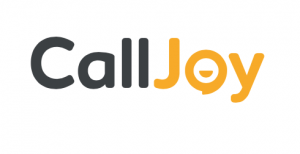 When Google Duplex made its public debut almost a year ago as an Intelligent Assistant capable of making dinner reservations and other transactions in selected “closed domains, it set off a firestorm of concern among ethicists who felt it very important for this type of bot to self-identify. Now, as Google initiates a controlled introduction of CallJoy, which can be seen as a business’s Duplex-like receiving end for phone calls, there won’t be the same sort of blowback. That’s because today’s callers are all too accustomed to having an automated voice greet them when they are getting in touch with a business, and there’s a very good chance that, rather than putting them on hold or taking a message, CallJoy will help them to order a meal or make an appointment.
When Google Duplex made its public debut almost a year ago as an Intelligent Assistant capable of making dinner reservations and other transactions in selected “closed domains, it set off a firestorm of concern among ethicists who felt it very important for this type of bot to self-identify. Now, as Google initiates a controlled introduction of CallJoy, which can be seen as a business’s Duplex-like receiving end for phone calls, there won’t be the same sort of blowback. That’s because today’s callers are all too accustomed to having an automated voice greet them when they are getting in touch with a business, and there’s a very good chance that, rather than putting them on hold or taking a message, CallJoy will help them to order a meal or make an appointment.
Some of what CallJoy does is explained in this video.
For the record, the service is available on an “invitation only” basis at this point. On the promotional Web site, Google invites visitors to “Request early access”.
Google proposes to charge $39 per month for its service. For that fee, the business is assigned a new telephone number with a local area code. By default, the service answers the phone and an automated agent can engage in what Google calls “a very narrow dialog.” It can provide hours of service, for instance, but if a caller wants to talk to a live employee, it transfers to the business’s primary number. In instances where a caller would like to make an appointment or order take-out, the system employs an automated text-back function to send a link to the company’s Web site.
All calls are recorded and transcribed, which makes their content into the raw material for subsequent analytics and reporting. As a former San Franciscan, I was impressed that one of the case studies cited by Google is Cliff’s Variety, a landmark retailer in the city’s Castro District. According to Google, it receives more than fifty calls every day. When it set up CallJoy, they learned from its “transcripts and insights” function that over 60% of incoming calls were customers asking about product inventory. Management is now able to track popular product inquiries and alter stocking accordingly.
It also means that the initial greeting contains a standard preamble to explain that calls are being recorded to provide better service. Yet it is clear from the tone of the promotion and the video that phone spam and call blocking is seen as a major source of value for small business owners. Imagine how much more efficient a business can be if an intelligent agent simply ignores nuisance calls. That function alone is worth the monthly fee for many businesses.
In addition to restaurants and retailers, the verticals among Google’s targeted prospects are salons and spas, services (home or appliance repair) and auto (detailing, service, retailing).
I used the term “AutoAttendant” advisedly in this post’s headline. Small businesses were a large, primary market for so-called key-telephone systems which that did rudimentary routing of inbound calls to a business’s main number to the proper extension. As vendors sought to differentiate, they added features like the Automated Attendant to answer the phone and conduct routing without the need for a receptionist or operator. CallJoy is the direct descendant of the simple AutoAttendant and its value should be easily recognized by businesses of all sizes. It makes natural language understanding, call recording and transcription, and analytics part of a basic package. Call blocking and anti-spam is emerging as a source of true value. All the features are combined to speed up the buying process for callers, while freeing up time for the business’s employees.
Categories: Intelligent Assistants, Articles

 NiCE Interactions 2025: Agentic AI, Better Data, and a Whole Lot of Partnership
NiCE Interactions 2025: Agentic AI, Better Data, and a Whole Lot of Partnership  Getting It Right: What AI Agents Actually Mean for Customer Support (Webinar)
Getting It Right: What AI Agents Actually Mean for Customer Support (Webinar)  Beyond the Basics: How AI Is Transforming B2B Sales at TP
Beyond the Basics: How AI Is Transforming B2B Sales at TP  Five9 Launches Agentic CX: Toward AI Agents That Reason and Act
Five9 Launches Agentic CX: Toward AI Agents That Reason and Act